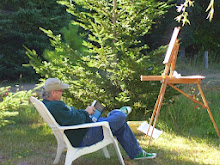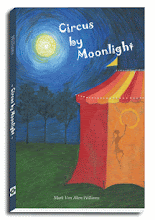You can now rate and review good and bad neighbors (emphasis on the bad) before you move into a neighborhood. The argument is that this can help you make a smart real estate decision. The information is contributed by the people in these neighborhoods. Rotten Neighbors is the real estate search engine. And here’s the catch—most of the postings are anonymous. It gets several thousand “hits” per day.
Let us talk about creating an atmosphere that fosters a sense of guilt by innuendo and how this creates a corrosive presence. It is through the internet that we can find this gangway to intellectual and social cowardice. Even though the internet provides freedom of speech, freedom of assembly, and freedom of the press in one connection, it also is now available for trafficking in innuendo and argument by implication.
Normally, neighborhoods have been rated for Noise, Safety, Appearance, Services, and Traffic. Now you can peruse for types of neighbors: the careless dog owner, the talker, the racket maker, and the scariest of all—the helper (beware of little old ladies bearing cookies). Using Google Maps, Rotten Neighbors shows homes of the accused (Red Monopoly-style houses for rotten and Green for good). Thanks to the internet, you can dig up all the dirt with only a few clicks. Remember—running a background check isn’t very difficult these days.
Unfortunately we have already seen, as social networking sites and internet blogs continue to increase in popularity and use, the opportunities for defamation have also increased. Defamation, by definition, is spoken or written words (and now Monopoly houses) that falsely and negatively reflect on a living person’s reputation.
Fortunately, we are also seeing blogs and social networks coming under the scrutiny of new legal rulings, where defamatory statements are presenting several potential sources of liability and recovery for the person whose character was defamed. The problems with bringing action, though, largely lie in proving that the defendant actually made the posting. If that connection can be made, a stronger case can be made. This usually requires the expertise and cost of an attorney who is experienced in cyber law and internet cases, to help with evidentiary sources.
So why is this a corrosive issue? It impacts our culture. Our heritage of liberty rests on moral equality, reciprocity, toleration, and as John Locke said, applying the same law to “the favorite at court, and the country man at plough.”
I have an idea--
Let’s go into a potential neighborhood and offer up some “witch cakes.” This comes from a part of our rich history, when in 1692 Mary Sibly (Salem Massachusetts) instructed John Indian (a slave) to make a witch cake, using traditional English white magic to discover the identity of the witch who was afflicting the girls of Salem. The witch cake was made of rye and urine from the afflicted girls and fed to a dog. When the dog ate the cake, the witch would be hurt because invisible particles she had sent to afflict the girls remained in their urine, and her cries of pain when the dog ate the cake would identify her as a witch. This superstition was based on the Cartesian Doctrine of Effluvia. If you hear any screaming from any of the households, don’t purchase any adjoining property.
But if this seems to hold the proxy of false accusation, perhaps we could take a little council from the good book: Everyone is to be secure against slander and false accusation. “You shall not give false testimony against your neighbor.” Exodus 20:16. “Do not go about spreading slander among your people. Do not do anything that endangers your neighbors’ life.” Leviticus 19:16, Deuteronomy 19:15-21.
Subscribe to:
Post Comments (Atom)







No comments:
Post a Comment